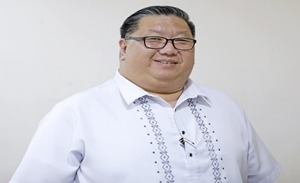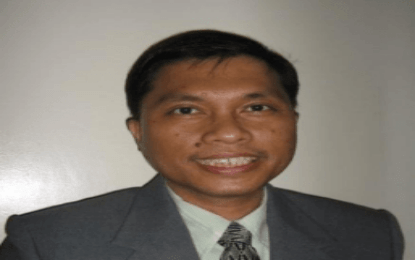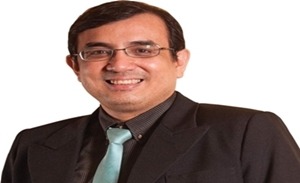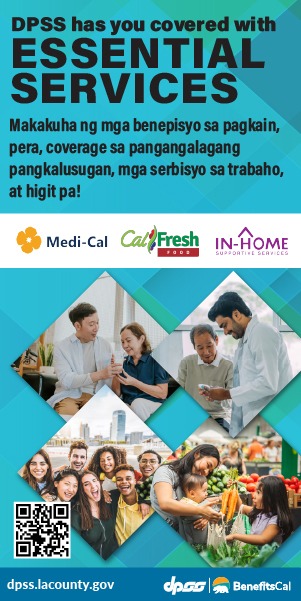FRESH VIEWPOINTS: A NEW PERSPECTIVE
By Brian James Lu
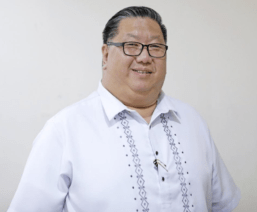
Amid the euphoria of victory and the despair of defeat in the midterm elections lies a crucial yet often overlooked democratic exercise—one frequently buried in mainstream print and social media: the active participation of citizens in shaping national and local budgets. Known as Open Government Partnership (OGP) Week, the event held from May 19 to 23 in the Philippines brings together government institutions, civil society organizations (CSOs), private sector partners, and the youth to champion the core values of transparency, accountability, citizen participation, and innovation in governance.
The OGP is a global initiative, and the Philippines is proud to be one of its eight founding members since its launch in 2011. The OGP aims to promote transparent, accountable, and inclusive governance. It brings together reform-minded governments and CSOs to co-create and implement concrete commitments that advance open governance. Through collaboration, the OGP fosters citizen participation, combats corruption, improves public services, and strengthens trust between governments and the people they serve. Today, the partnership includes 77 countries and 150 local governments—representing over two billion people—working alongside thousands of CSOs to drive meaningful democratic reforms.
The Philippines holds a distinctive position on the global stage, having once been hailed as the ‘NGO/CSO Capital of the World’ due to the remarkable number and vibrancy of its civil society organizations. Over the years, the active engagement of nongovernment organizations (NGOs) in governance has evolved into a formidable political force. Their collective voice and mobilization capacity have not only influenced public policy but, at critical moments in the nation’s history, have helped shape political outcomes—demonstrating the power of organized citizen action to make or unmake governments.
On Feb. 6, 2025, President Ferdinand R. Marcos Jr. stressed the need for transparency in governance as he officially opened the 2025 OGP Asia and the Pacific Regional Meeting (APRM), which brought together 800 participants from 40 countries, including government officials, civil society leaders, and policy experts. He stated, ‘Our people can only truly participate in governance if they have access to information. This access is made possible by government transparency, digitalization, and the institutionalization of the Freedom of Information (FOI) through legislation, which is a constitutionally recognized principle.’
Editor’s note: The opinions expressed in the foregoing article are solely the author’s and do not reflect the opinions and beliefs of the Philippine News Agency (PNA) or any other office under the Presidential Communications Office.
Indeed, the OGP Week in the Philippines emerged as a landmark event for CSOs, offering a vital platform to legitimize and elevate their advocacies on a wide range of societal issues. From national to local levels of governance, it provided CSOs the opportunity to engage directly with government institutions, strengthen partnerships, and amplify their collective voice in the push for transparency, accountability, and inclusive, transformative governance.
OGP Week weaves together a diverse tapestry of issues reflecting the Philippines’ open government commitments. Spearheaded by the Department of Budget and Management (DBM), the week’s activities highlight key people-centered concerns, including open agrarian reform, youth engagement in participatory governance, and CSO-government collaboration in the justice sector, among others.
One session that stood out to me was the education budgeting advocacy led by the Civil Society Network for Education Reforms (E-Net Philippines), Inc. E-Net is a coalition of over a hundred civil society organizations and education advocates dedicated to promoting the right to education for all—particularly the marginalized, excluded, and vulnerable sectors, or MEVs. As the civil society representative to the OGP Steering Committee on Education in the Philippines, E-Net plays a vital role in bridging grassroots experiences with policy-level dialogue, contributing meaningfully to participatory governance in the education sector.
E-Net emphasizes that public budgets should reflect public priorities—but too often, they overlook the voices and needs of the most marginalized. It asserts that budgeting must be a tool for inclusion and equity, not exclusion and privilege. E-Net advocates for the right to education of MEVs that include indigenous peoples, learners with disabilities, out-of-school youth and adults, children in conflict with the law or in detention, those in disaster-prone or conflict-affected areas, urban poor and street children, LGBTQIA+ youth, migrant children, children of OFWs, and those living in extreme poverty.
E-Net’s advocacy for marginalized, excluded, and vulnerable (MEV) groups is deeply grounded in the lived realities and challenges these communities face on the ground. As of September 2023, the Bangsamoro Autonomous Region in Muslim Mindanao (BARMM) had the highest number of out-of-school children, primarily due to the high cost of education. The dropout rate among indigenous children was three times the national average, while a staggering 60 percent of children with disabilities were not enrolled in any formal educational institution or learning facility. These figures indicate a pressing need for inclusive and equitable education policies.
The Philippine education system faces complex, multifaceted challenges. Addressing the specific needs of vulnerable sectors requires the collective effort of civil society organizations, communities, parents, and government stakeholders. Many of these issues have been highlighted in reports by the Second Congressional Commission on Education (EDCOM), which I have discussed in previous columns.
We are fortunate to see a strong and active civil society community in the education sector. Their efforts to bring the plight of marginalized, excluded, and vulnerable (MEV) groups to the attention of the government—and to advocate for increased education funding in response to these needs—are both timely and essential.
OGP is more than just a venue for policy dialogue—it is a powerful reminder of the essential role that citizens and civil society organizations play in building a more inclusive and accountable government. With education at the forefront, the OGP underscored the urgency of sustained collaboration, evidence-based advocacy, and meaningful public participation to address the needs of the marginalized, excluded, and vulnerable sectors.
More importantly, the value of education is undeniable, as captured in John Dewey’s powerful reminder: ‘Education is not preparation for life; education is life itself.’ Ensuring that education remains accessible and equitable is not merely a policy objective—it is a fundamental step toward building a just and empowered society.

